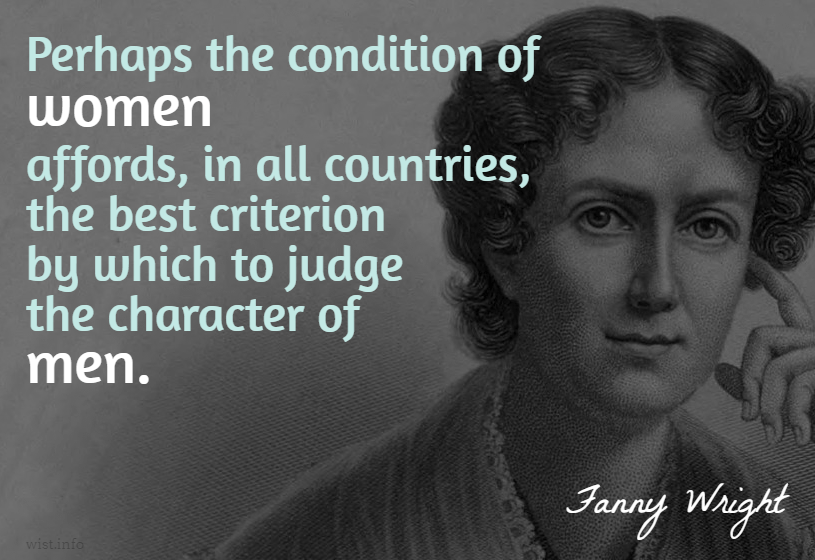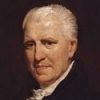CLAUDIO: O, what men dare do! What men may do!
What men daily do, not knowing what they do!William Shakespeare (1564-1616) English dramatist and poet
Much Ado About Nothing, Act 4, sc. 1, l. 19ff (4.1.19-20) (1598)
(Source)
Quotations about:
men
Note not all quotations have been tagged, so Search may find additional quotes on this topic.
A man always blames the woman who fools him. In the same way he blames the door he walks into in the dark.
H. L. Mencken (1880-1956) American writer and journalist [Henry Lewis Mencken]
A Little Book in C Major, ch. 6, § 1 (1916)
(Source)
Repeated in A Book of Burlesques, ch. 12 "The Old Subject," § 6 (1924)] and Chrestomathy, ch. 30 "Sententiae" (1949).
BALTHAZAR: Sigh no more, ladies, sigh no more,
Men were deceivers ever,
One foot in sea and one on shore,
To one thing constant never.
Then sigh not so, but let them go,
And be you blithe and bonny,
Converting all your sounds of woe
Into Hey, nonny nonny.William Shakespeare (1564-1616) English dramatist and poet
Much Ado About Nothing, Act 2, sc. 3, l. 64ff (2.3.64-71) (1598)
"Hey, nonny nonny" was a nonsense refrain popular in English music during the Elizabethan era; in context here, it means stop grieving over the guy that dumped you and put that effort instead into some merry-making and song. Music historian Ross Duffin believes the form of Balthazar's tune fits a popular song of the Tudor period, "The Lusty Gallant."
The way to a man’s heart is through his stomach, especially if you tell him how flat it is.
Mignon McLaughlin (1913-1983) American journalist and author
The Second Neurotic’s Notebook, ch. 3 (1966)
(Source)
Men are convinced that women have it easy, but they haven’t convinced many women.
Mignon McLaughlin (1913-1983) American journalist and author
The Second Neurotic’s Notebook, ch. 3 (1966)
(Source)
It is always incomprehensible to a man that a woman should ever refuse an offer of marriage. A man always imagines a woman to be ready for any body who asks her.
For ages past, women were defined only in relation to other people, and the definition lingers: a woman may be called a wife and mother for most of her life, while a man is called a husband and father only at his funeral.
Barbara Holland (1933-2010) American author
One’s Company: Reflections on Living Alone, ch. 1 (1992)
(Source)
When the bathhouse breaks into loud applause,
you will know that well-hung Mario is the cause.[Audieris in quo, Flacce, balneo plausum,
Maronis illic esse mentulam scito.]Martial (AD c.39-c.103) Spanish Roman poet, satirist, epigrammatist [Marcus Valerius Martialis]
Epigrams [Epigrammata], Book 9, epigram 33 (9.33) (AD 94) [tr. Juster (2016)]
(Source)
(Source (Latin)). Alternate translations:
In whatever bath, Flaccus, you hear sounds resembling applause, know that there Maron's yard is to be found.
[tr. Bohn's Classical (1897); in earlier editions, just the Latin and an Italian translation were given.]
In the baths what is now the most pleasing diversion
Is to go and see Maro displaying his person.
[tr. Pott & Wright (1921), "The Wonder"]
If you’re passing the baths and you hear,
From within, an uproarious cheer,
You may safely conclude
Maron’s there, in the nude,
With that tool which has nowhere a peer.
[tr. Humphries (1963)]
It's easy to tell
by the roar of applause
in which of the baths
Maron is bathing.
[tr. Goertz (1971)]
If from the baths you hear a round of applause,
Maron's giant prick is bound to be the cause.
[tr. Michie (1972)]
When you hear applause in a bath, Flaccus, you may be sure that Maro's cock is there.
[tr. Shackleton Bailey (1993)]
The bath house applauds, with widening eyes,
When Maron reveals his astonishing size.
[tr. Ericsson (1995)]
The critics in the Baths rain bravos thick
For Marcus' coup de théâtre, his dick.
[tr. Wills (2007)]
If from the baths you hear a round of applause,
The giant prick of Maron is surely the cause.
[tr. Cooper]
FRIEDAN: There was a masculine mystique, too.
PLAYBOY: What was it?
FRIEDAN: Men had to be supermen: stoic, responsible meal tickets. Dominance is a burden. Most men who are honest will admit that.
Men weren’t really the enemy — they were fellow victims suffering from an outmoded masculine mystique that made them feel unnecessarily inadequate when there were no bears to kill.
Betty Friedan (1921-2006) American writer, feminist, activist
The Feminine Mystique, Epilogue (1974 ed.)
(Source)
Sometimes paraphrased: "Man is not the enemy here, but the fellow victim."
Women are good listeners, but it’s a waste of time telling your troubles to a man unless there is something specific you want him to do.
Mignon McLaughlin (1913-1983) American journalist and author
The Neurotic’s Notebook, ch. 3 (1963)
(Source)
At twenty, men love women; at forty, girls; at fifty, themselves.
Minna Antrim (1861-1950) American epigrammatist, writer
Phases, Mazes, and Crazes of Love (1904)
(Source)
Men who don’t like girls with brains don’t like girls.
Mignon McLaughlin (1913-1983) American journalist and author
The Second Neurotic’s Notebook, ch. 3 (1966)
(Source)
Originally published in McLaughlin's "The Neurotic's Notebook" column in The Atlantic, some time in 1965.
There is, in fact, no incompatibility between the principles of feminism and the possibility that men and women are not psychologically identical. To repeat: equality is not the empirical claim that all groups of humans are interchangeable; it is the moral principle that individuals should not be judged or constrained by the average properties of their group. In the case of gender, the barely defeated Equal Rights Amendment put it succinctly: “Equality of Rights under the law shall not be denied or abridged by the United States or any state on account of sex.” If we recognize this principle, no one has to spin myths about the indistinguishability of the sexes to justify equality. Nor should anyone invoke sex differences to justify discriminatory policies or to hector women into doing what they don’t want to do.
Steven Pinker (b. 1954) Canadian-American cognitive psychologist, linguist, author
The Blank Slate, Part 5, ch. 18 (2002)
(Source)
The first symptom of true love in a young man is timidity; in a young girl it is boldness. This is surprising, and yet nothing is more simple. It is the two sexes tending to approach each other and assuming each the other’s qualities.
Victor Hugo (1802-1885) French writer
Les Misérables, Vol. 4, Book 3, ch. 6 (1862) [tr. Hapgood]
(Source)
Male supremacy: Doctrine built upon three forms of superiority: the ability to grow a handlebar mustache, the ability to answer most of Nature’s calls efficiently, and the possession of pockets.
Marie Shear (1940-2017) American writer and feminist activist
“Media Watch: Celebrating Women’s Words,” New Directions for Women (May/Jun 1986)
(Source)
The allurement that women hold out to men is precisely the allurement that Cape Hatteras holds out to sailors: they are enormously dangerous and hence enormously fascinating.
H. L. Mencken (1880-1956) American writer and journalist [Henry Lewis Mencken]
“The Incomparable Buzz-Saw,” The Smart Set (May 1919)
(Source)
Perhaps the condition of women affords, in all countries, the best criterion by which to judge the character of men.
Frances "Fanny" Wright (1795-1852) Scottish-American writer, lecturer, social reformer
Views of Society and Manners in America, Letter 23, Mar. 1820 (1821)
(Source)
Secrets with girls, like loaded guns with boys,
Are never valued till they make a noise.George Crabbe (1754-1832) English poet, writer, surgeon, clergyman
Tales of the Hall, “The Maid’s Story” (1819)
(Source)
If there hadn’t been women we’d still be squatting in a cave eating raw meat, because we made civilization in order to impress our girlfriends.
Orson Welles (1915-1985) American writer, director, actor
Interview with David Frost, David Frost Show (12 May 1970)
(Source)
Women are supposed to be very calm generally; but women feel just as men feel; they need exercise for their faculties and a field for their efforts as much as their brothers do; they suffer from too rigid a restraint, too absolute a stagnation, precisely as men would suffer; and it is narrow-minded in their more privileged fellow-creatures to say that they ought to confine themselves to making puddings and knitting stockings, to playing on the piano and embroidering bags. It is thoughtless to condemn them, or laugh at them, if they seek to do more or learn more than custom has pronounced necessary for their sex.
Charlotte Brontë (1816-1855) British novelist [pseud. Currer Bell]
Jane Eyre, ch. 12 [Jane] (1847)
(Source)
MEG: They’re either married or gay. And if they’re not gay, they’ve just broken up with the most wonderful woman in the world, or they’ve just broken up with a bitch who looks exactly like me. They’re in transition from a monogamous relationship and they need more space. Or they’re tired of space, but they just can’t commit. Or they want to commit, but they’re afraid to get close. They want to get close, you don’t want to get near them.
The men leaned back on their heels, put their hands in their trouser-pockets, and proclaimed their views with the booming profundity of a prosperous male repeating a thoroughly hackneyed statement about a matter of which he knows nothing whatever.
Marrying a man is like buying something you’ve been admiring for a long time in a shop window. You may love it when you get it home, but it doesn’t always go with everything else in the house.
Gentlemen: I shall never shave, for the same reason that I started a beard, and for the reason my father started his. I remember standing at his side, when I was five, while he was shaving for the last time. “Father,” I asked, “Why do you shave?” He stood there for a full minute and finally looked down at me. “Why the hell do I?” he said.
George Bernard Shaw (1856-1950) British playwright and critic
(Attributed)
Postcard response when invited by an electric razor company to shave off his beard with their product. Variant:
- "I was about five at the time, and I was standing at my father's knee whilst he was shaving. I said to him, 'Daddy, why do you shave?' He looked at me in silence, for a full minute, before throwing the razor out of the window, saying, 'Why the hell do I?' He never did again."
Men know that women are an over-match for them, and therefore they choose the weakest or most ignorant. If they did not think so, they never could be afraid of women knowing as much as themselves.
“Why do men feel threatened by women?” I asked a male friend of mine. (I love that wonderful rhetorical device, “a male friend of mine.” It’s often used by female journalists when they want to say something particularly bitchy but don’t want to be held responsible for it themselves. It also lets people know that you do have male friends, that you aren’t one of those fire-breathing mythical monsters, The Radical Feminists, who walk around with little pairs of scissors and kick men in the shins if they open doors for you. “A male friend of mine” also gives — let us admit it — a certain weight to the opinions expressed.) So this male friend of mine, who does by the way exist, conveniently entered into the following dialogue. “I mean,” I said, “men are bigger, most of the time, they can run faster, strangle better, and they have on the average a lot more money and power.” “They’re afraid women will laugh at them,” he said. “Undercut their world view.” Then I asked some women students in a quickie poetry seminar I was giving, “Why do women feel threatened by men?” “They’re afraid of being killed,” they said.
Margaret Atwood (b. 1939) Canadian writer, literary critic, environmental activist
“Writing the Male Character,” Hagey Lecture, U. of Waterloo (9 Feb 1982)
(Source)
Published in a revised version as "Writing the Male Character," Second Words: Selected Critical Prose, 1960-1982 (1983).
Usually paraphrased, "Men are afraid that women will laugh at them. Women are afraid that men will kill them."
Maybe my values are outdated, but I come from an old school of thought. I think that men ought to treat women like something other than just shorter, weaker men with breasts. Try and convict me if I’m a bad person for thinking so. I enjoy treating a woman like a lady, opening doors for her, paying for shared meals, giving flowers — all that sort of thing.
I had first noticed her in the lobby of the Churchill, because she rated a glance as a matter of principle — the principle that a man owes it to his eyes to let them rest on attractive objects when there are any around.
Again, the male is by nature superior, and the female inferior; and the one rules, and the other is ruled; this principle, of necessity, extends to all mankind.
Aristotle (384-322 BC) Greek philosopher
Politics [Πολιτικά], Book 1, ch. 5 / 1254b [tr. B. Jowett (1885)]
(Source)
Aristotle is arguing that there is a natural distinction between the rulers and ruled, starting first with animals, then with sex. Alternate translations:
- "Again, the relation of male to female is naturally that of superior and inferior, ruling and ruled, and the same kind of relation must necessarily exist in the case of all men generally." [tr. Bolland (1877)]
- "So is it naturally with the male and the female; the one is superior, the other inferior; the one governs, the other is governed; and the same rule must necessarily hold good with respect to all mankind." [tr. Ellis (1912)]
- "Again, as between the sexes, the male is by nature superior and the female inferior, the male ruler and the female subject. And the same must also necessarily apply in the case of mankind as a whole." [tr. Rackham (1932)]
- "Further, the relation of male to female is by nature a relation of superior to inferior and ruler to ruled. The same must of necessity hold in the case of human being generally." [tr. Lord (1984)]
All is vanity and everybody’s vain. Women are terribly vain. So are men — more so, if possible.
Jerome K. Jerome (1859-1927) English writer, humorist [Jerome Klapka Jerome]
Idle Thoughts of an Idle Fellow, “On Vanity and Vanities” (1886)
(Source)
The difference between men and boys
Is the price of their toys.Malcolm Forbes (1919-1990) American billionaire
The Sayings of Chairman Malcolm, “Simple Truths” (1978)
Also attributed to Liberace, J. T. Russell, Joyce Brothers, Mark Twain, Doris Rowland, and Dorothy Parker. The phrase can be found in this form in Millard Dale Baughman, Educator's Handbook of Stories, Quotes and Humor (1963), and in 1964 Senate testimony.
For a likely predecessor, see Franklin.
Most books on witchcraft will tell you that witches work naked. This is because most books on witchcraft are written by men.
Terry Pratchett (1948-2015) English author
Good Omens, 3. “Wednesday” (1990) [with Neil Gaiman]
(Source)
The word “idiot” comes from a Greek root meaning private person. Idiocy is the female defect: intent on their private lives, women follow their fate through a darkness deep as that cast by malformed cells in the brain. It is no worse than the male defect, which is lunacy: men are so obsessed by public affairs that they see the world as by moonlight, which shows the outlines of every object but not the details indicative of their nature.
Rebecca West (1892-1983) British author, journalist, literary critic, travel writer [pseud. for Cicily Isabel Fairfield]
Black Lamb and Grey Falcon, Prologue (1941)
(Source)
Sometimes oddly paraphrased, "The main difference between men and women is that men are lunatics and women are idiots."

































